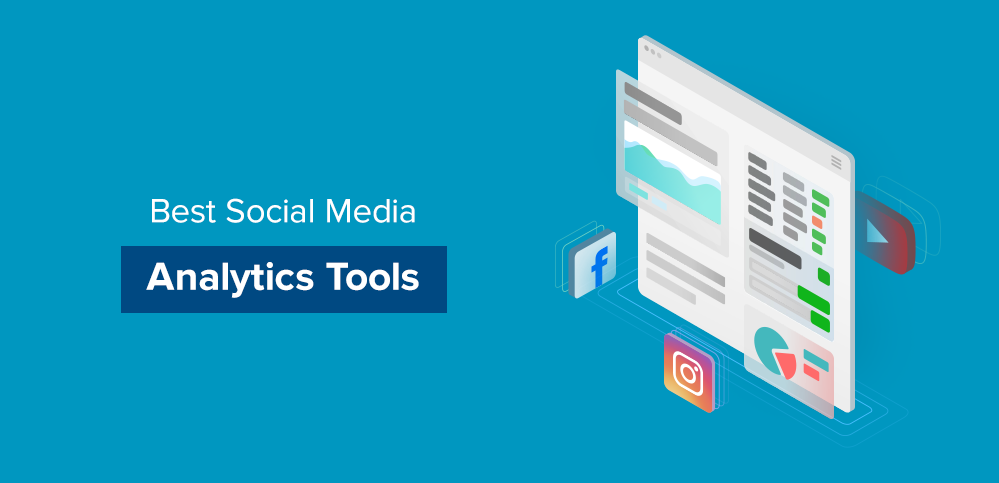In the fast-paced world of digital marketing, staying ahead requires more than just a presence on social media. Understanding your audience, tracking trends, and analyzing the competition are vital components of a successful strategy. Enter Social Media Analytics Software, the game-changer for businesses aiming to thrive in the digital age.
Definition of Social Media Analytics Software

Social Media Analytics Software refers to tools and platforms designed to gather, analyze, and interpret data from various social media channels. These tools provide invaluable insights into user behavior, engagement metrics, and overall performance on platforms like Facebook, Twitter, Instagram, and more.
Importance in the Digital Age
In an era where online presence is synonymous with brand success, leveraging social media analytics software becomes a necessity. The ability to decipher the wealth of data generated on social platforms empowers businesses to make informed decisions, enhance customer interactions, and strategize marketing campaigns effectively.
Key Features of Social Media Analytics Software
A. Real-time Monitoring
One of the standout features of these tools is real-time monitoring. Businesses can track mentions, comments, and shares as they happen, allowing for immediate responses and engagement.
B. Sentiment Analysis
Understanding how the audience perceives a brand is crucial. Social media analytics software employs sentiment analysis to gauge the mood behind comments and mentions, providing insights into customer satisfaction and areas that need improvement.
C. Competitor Analysis
Staying ahead of the competition is a perpetual goal. These tools enable businesses to monitor competitors’ activities, identify successful strategies, and capitalize on market trends effectively.
D. Performance Metrics Tracking
From the number of clicks to user demographics, social media analytics software provides a comprehensive overview of performance metrics. This data is instrumental in refining marketing strategies and maximizing ROI.
Benefits for Businesses
A. Improved Decision-Making
With data-driven insights at their fingertips, businesses can make informed decisions. Whether launching a new product or tweaking a marketing campaign, social media analytics software provides the necessary intelligence for success.
B. Enhanced Customer Engagement
Understanding what resonates with the audience allows businesses to tailor content that fosters engagement. Social media analytics software identifies trends, preferences, and viral content, paving the way for meaningful interactions.
C. Strategic Marketing Campaigns
Gone are the days of shooting in the dark with marketing efforts. These tools enable businesses to craft targeted and strategic campaigns based on real-time data, resulting in higher conversion rates and brand loyalty.
Popular Social Media Analytics Tools
A. Google Analytics
Google Analytics extends beyond website data, offering social media insights that integrate seamlessly with other metrics.
B. Hootsuite
Hootsuite is renowned for its social media management capabilities, including analytics that simplify tracking and reporting.
C. Sprout Social
With a focus on user engagement, Sprout Social‘s analytics feature provides a deep dive into audience behavior and campaign performance.
D. AIM Insights
Specializing in social listening, AIM Insights excels in extracting valuable insights from social media conversations, helping businesses stay ahead of trends.
How to Choose the Right Software
A. Consideration of Business Goals
The right social media analytics software aligns with specific business objectives. Whether it’s increasing brand awareness or driving sales, choosing a tool that caters to these goals is paramount.
B. Scalability and Integration
As businesses grow, so do their needs. Opt for a scalable solution that can evolve with the business. Integration with existing systems ensures a seamless workflow.
C. User-Friendly Interface
An intuitive interface is key to maximizing the benefits of social media analytics software. Choose a user-friendly tool, that allows teams to navigate and utilize features without a steep learning curve.
Challenges and Solutions
A. Data Privacy Concerns
The abundance of data raises privacy concerns. Social media analytics tools must prioritize data security and compliance with regulations to address these apprehensions.
B. Overcoming Analytical Complexity
For some businesses, the wealth of data can be overwhelming. Simplifying analytics and providing actionable insights is a challenge that software developers continuously address.
C. Adapting to Algorithm Changes
Social media algorithms are dynamic, impacting the visibility of content. Social media analytics software must adapt to these changes swiftly to provide accurate and relevant insights.
Future Trends
A. AI Integration
The integration of artificial intelligence is set to revolutionize social media analytics, offering more sophisticated insights and predictive analytics.
B. Advanced Predictive Analytics
The future lies in predictive analytics, allowing businesses to anticipate trends and consumer behavior, giving them a competitive edge.
C. Cross-platform Integration
As users engage across multiple platforms, social media analytics software will evolve to offer seamless cross-platform integration, providing a holistic view of a brand’s online presence.
Conclusion
Summarize the key insights gained from exploring social media analytics software. Emphasize its transformative impact on decision-making, customer engagement, and overall business success.
Offer a glimpse into the future of social media analytics. Discuss anticipated advancements, emerging trends, and how businesses can prepare for the evolving landscape.
Ready to Elevate Your Strategy? Request a Demo from AIM Technologies!
FAQs
Is social media analytics only relevant for large businesses?
- No, social media analytics is beneficial for businesses of all sizes. It provides valuable insights for strategic decision-making and improving online presence.
How often should I analyze social media data?
- The frequency of analysis depends on your business goals. Regular monitoring is recommended, but in-depth analysis can be done weekly or monthly.
Can social media analytics predict future trends?
- Yes, with the integration of predictive analytics, these tools can provide insights into emerging trends and user behavior.
Is social analytics software user-friendly for non-tech-savvy individuals?
- Many tools are designed with user-friendly interfaces, and training programs can help individuals navigate and leverage these tools effectively.
Are there privacy concerns with social media analytics?
- Addressing data privacy is crucial. Reputable social media analytics tools prioritize user data security and comply with privacy regulations.


